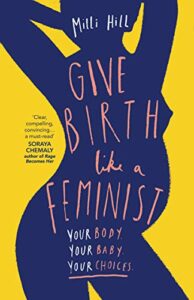As the saying goes, ‘Knowledge is power.’ This couldn’t be more true when it comes to giving birth.
The more we know, the more in control and confident we can feel about birth. You could turn to the internet, but I have found that this can be a scary place when researching birth. It can lead you down many a Google hole and cause you to self diagnose and catastrophize, (We’ve all been there.) This is why I tend to advise clients to try and stay away from Dr Google.
Instead, I’ve listed my top 10 favourite birth books which are evidence based, reliable and won’t run out of charge half way through reading.
- The Positive Birth book, by Milli Hill. If there’s one book I suggest buying it’s this one. I’ve bought it for friends, relatives, workmates and even sent a copy to a stranger I met at a wedding once. (I think she just accepted my offer to shut me up banging on about it) Until I read this book, I had no idea that birth could be a positive experience. This was the book that made me want to go from having a general anaesthetic and woken up when it was all over- to wanting to be completely involved and aim for a natural birth. It is a powerful and really reassuring account of childbirth, as well as a really useful resource to help you plan your birth.
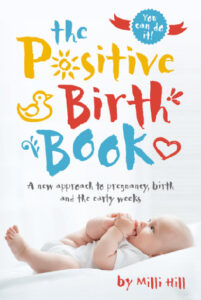
2. Overdue, by Amity Reed.
It’s been a long time since I cried reading a book, this had me filling up throughout. Overdue is a very much-needed analysis of the realities of midwifery, maternity care, and birthing within the NHS. I knew the NHS was overstretched and had heard many stories over the years about how bad management, underfunding and lack of resources was causing issues throughout the NHS, but I had absolutely no idea it was this bad.This memoir is a heart wrenching personal account from@amity.reed about life as a Midwife in the UK. There are some truly shocking statistics and stories in here, for example, for every 30 midwives that train, 20 will leave the profession. I was truly gobsmacked by the way our midwifery service is ran and how our amazing midwives are treated, and can clearly see after reading Amity’s account, why so many have no choice but to leave the profession.This book has nothing to do with hypnobirthing, but i’d still recommend giving this a read, that way you’ll have more of an understanding about the profession and hopefully a deeper respect for the amazing midwifery teams across the UK.

3. Why Oxytocin matters, Kersten Unvnas Moberg.
If you’re pregnant and have read any books or listened to any podcasts about hypnborthing, then I’ll put £1,000 on the fact that you’ll have heard about the hormone, ‘Oxytocin.’ The essential hormone that we need for birth. All hypnobirthing courses and books will delve into the importance of producing this hormone and how we can best ensure that we give our body the best possible chance of producing lots of it during birth. This book however, goes much deeper into the study of Oxytocin, looking at its production, its effects, why we need it and the many benefits during birth.
The chapters on Oxytocin and medial interventions and on Synthetic Oxytocin are really insightful. With many women having medicalised births, it’s important to understand firstly, how important it is to still try to work with your body to produce oxytocin naturally, and secondly, how birth may change should Synthetic Oxytocin be administered.
Understanding the hugely important role that Oxytocin plays in birth will give you a solid base from which to build your birth plan. Once you’re aware that you need to give your body the right environment and conditions to produce oxytocin, then the rest falls in to place .This book is a great grounding in the physiology of birth and the science behind how birth works, so if you’re keen on doing your research and delving deep into the science then this book is a great place to start.
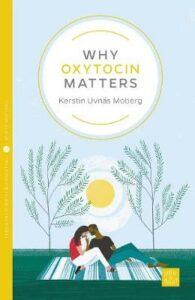
4. Ina May’s Guide to Childbirth, Ina May Gaskin.
Ina May Gaskin is known as one of the World’s pioneers when it comes to championing natural birth. She is famous for founding ‘The Farm’ a midwifery centre in the US which supports and encourages natural birth. It is well known for its extremely low intervention and caesarean rates. So it’s no surprise that this book focuses predominantly on natural birth and how this is best supported.
The first half of the book is made up of birth stories from women mostly birthing at home and at the farm and a couple in hospital. The second half of the book is called ‘The Essentials of Birth,’ and goes into detail explaining how Ina May and her team at the farm support birth to achieve such low intervention rates. (The caesarean rate at the Farm is just 2% versus 30-40% in the rest of the US)
For women who are hoping to have a natural birth, then this book will give you practical advice on how to work with your body to support physiological birth. It will also remind you of just how powerful and capable you are and remind you that your body was designed to birth. For anyone planning a homebirth, I’d say that this book is essential reading, Ina May will leave you feeling confident, empowered and reassured.

5. Reclaiming childbirth as a rite of passage, Rachel Reed.
I just adored this book… “It’s time for a childbirth revolution. The modern approach to maternity care fails women, families and care providers with outdated practices that centre the needs of institutions rather than individuals. “In her book, Rachel Reed weaves history, science and research with the experiences of women and care providers to create a holistic and evidence based framework for understanding birth.
This book will change the way you view childbirth. In my opinion, it should be essential reading for midwives, obstetricians, doulas, women and teenage girls- to enlighten them with the truth about childbirth.
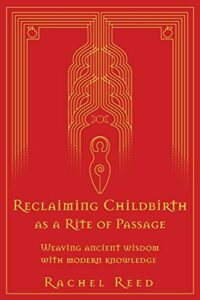
6. Why induction matters, Rachel Reed.
Induction of labour is a very common occurrence, with around 20% of all births being induced. However, you take into account the ‘sweep’ procedure, then that percentage jumps to around 60% (A sweep is an artificial means of starting your labour) In other words, Inductions are hugely common, so it’s a good idea to learn all about them so that you can be prepared should your birth be induced.
Why induction matters by Dr Rachel Reed @midwifethinking provides a comprehensive, evidence based guide to induction. Many women may be advised to have their birth induced, without being informed about what it may involve. This is why this book is so important. Without fully understanding the induction process, women are unable to make informed decisions about their care.
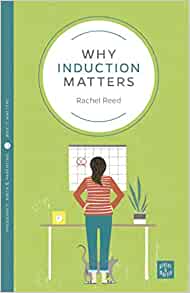
7. Why homebirth matters, Natalie Meddings
I wish I had come across this book when I was planning my first homebirth, it would have saved me a lot of time scouring the internet for research. There isn’t a huge amount out there about homebirth, last year (2021) the homebirth rate in the UK was around 2%, so it’s still a very fringe choice. This book makes you realise that although it may be a fringe choice, it is absolutely not a bad one! I loved the chapter ‘Why Birth at home works,’ nearly all of it is highlighted with nuggets of gold, one of my favourites being..” The birth process is involuntary, but it is sensitive. Labour is automatic, but it is easily disturbed…it works on the basis that you’re going to give it the right conditions, fullest possibility of the pelvis being free, total lack of disturbance, so that you can switch off and relax; and an atmosphere that helps oxytocin release. Women now cannot release the hormone they are supposed to be releasing for birth- oxytocn- says Michael Odent. We have completely forgotten what the basic needs of a labouring woman are- the things that help that hormone to release. Privacy, feeling safe and not feeling observed. Hospital settings and routine maternity care mostly disregard these physiological needs- from brightly lit reception areas to timeframes for labour and dilation scores.”
The book is obviously very pro-homebirth, but it provides a holistic view, with the chapter ‘forks in the road’ explaining some of the reasons for transfer.
If you are considering a homebirth, then this is the first book that I would recommend. It will leave equip you with all the evidence and research that you’ll need in order to make your decision.
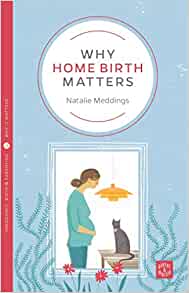
8. Why caesarean matters. Clare Goggin
I always advice clients to outline their preferences for a caesarean birth, even if they are hoping to avoid one. By putting together a ‘Plan B’ it just means that you are now prepared for every eventuality. Meaning there is less likely to be any last minute rushed decisions.
‘Why Caesarean Matters’ aims to navigate the research and put women at the centre of their own care so that their birth can be a positive experience, however it unfolds. The clear and evidence- based discussion addresses the questions that women and their care providers may have, enabling women to make positive decisions and feel supported if a caesarean is needed.
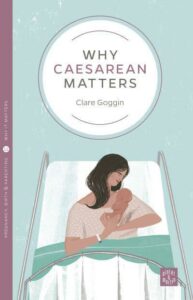
9. Labour of Love, The ultimate guide to being a birth partner, Sallyann Beresford.
I first came across Sallyann when I heard her being interviewed on a podcast. From my own experience, I have always believed that birth partners have just as tough, if not tougher job than the birthing woman. They have to stand by and watch their partner go through one of the most physically and mentally challenging hours/days of their lives. The role of the birth partner is an incredibly complex one- it’s about supporting, cheerleeding, protecting, advocating, whilst staying out of the way at the same time! As Sallyann explains in her book, ‘ A birth partner’ can literally make or break a positive birth experience. This is why Sallyann’s book is so important. It will help birth partners realise just how essential their role is and that a positive birth is very much a joint effort.
Birth partners as well as birthing women will gain so much from reading this book. It will enable you to put together a birth plan together, and give you practical tips as to how a birth partner can best support the birthing woman.
Until I had read this book, i’ll be honest, I don’t think I paid enough due diligence to birth partners, however, since reading it, It now plays a more prevalent part of my course. Because of this book- I now teach a whole section to birth partners.
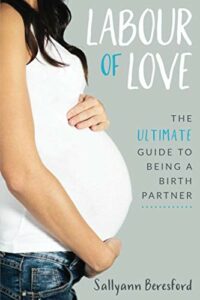
10. Give Birth like a feminist, Your body, your baby, your choices. Milli Hill.
Milli Hill has perfectly articulates how mainstream birth culture and maternity systems disempower women and why. It can be quite tough reading at times, (there are some pretty shocking birth stories) but it isn’t supposed to be an easy read. It’s supposed to make you angry and shocked, it’s supposed to open your eyes to the reality of the birthing systems in the Western world.
Milli believes that “There is not one single type of birth that we cannot improve on” and whilst her book fights for the near extinction of natural physiological birth, it also supports women who are unable to have straightforward vaginal births, giving practical advice on how women’s experiences can be improved and how we can all play a part in improving the support that birthing women receive in this country.
Milli provides practical suggestions for taking control of your body, baby and choices, to help you have a positive birth whatever that may look like.
